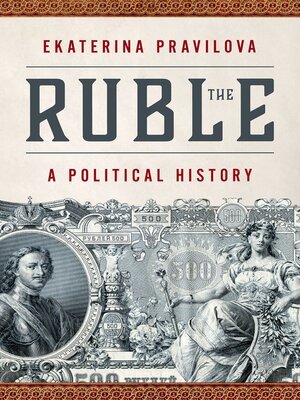
Sign up to save your library
With an OverDrive account, you can save your favorite libraries for at-a-glance information about availability. Find out more about OverDrive accounts.
Find this title in Libby, the library reading app by OverDrive.



Search for a digital library with this title
Title found at these libraries:
| Library Name | Distance |
|---|---|
| Loading... |
A groundbreaking history of Russia, from empire to the Soviet era, viewed through the lens of its money. Money seems passive, a silent witness to the deeds and misdeeds of its holders, but through its history intimate dramas and grand historical processes can be told. So argues this sweeping narrative of the ruble's story from the time of Catherine the Great to Lenin. The Russian ruble did not enjoy a particularly reputable place among European currencies. Across two hundred years, long periods of financial turmoil were followed by energetic and pragmatic reforms that invariably ended with another collapse. Why did a country with an industrializing economy, solid private property rights, and (until 1918) a near perfect reputation as a rock-solid repayer of its debts stick for such a prolonged period with an inconvertible currency? Why did the Russian gold standard differ from the European model? In answering these questions, Ekaterina Pravilova argues that politics and culture must be considered alongside economic factors. The history of the Russian ruble offers an opportunity to explore the political reasons behind the preservation of a supposedly backward financial system and to show how politicians used monetary reforms to block or enact political transformations. The Ruble is a history of Russia written in the language of money. It shows how economists, landowners, merchants, and peasants understood, perceived, and used financial mechanisms. In her sweeping account, Pravilova interprets the well-known political events of the eighteenth to early twentieth centuries—wars, attempts at constitutional transformations, revolutions—through the ideas and politics of currency reforms and offers a new history of Russia's imperial expansion and collapse.







